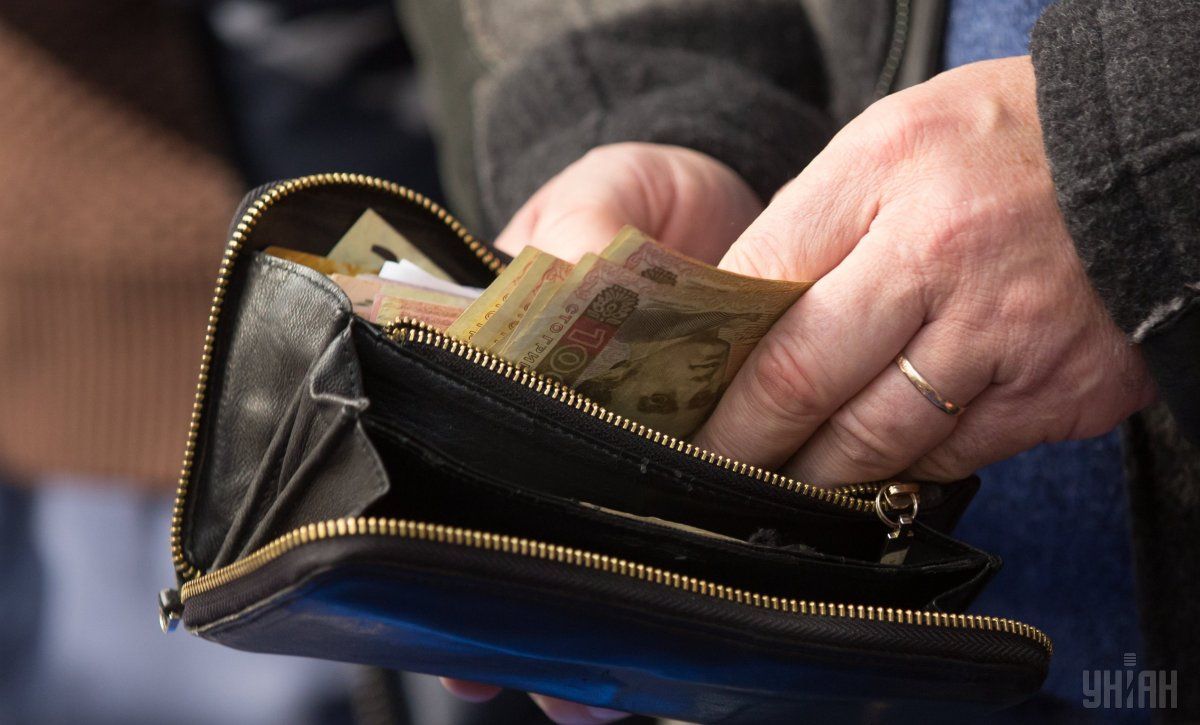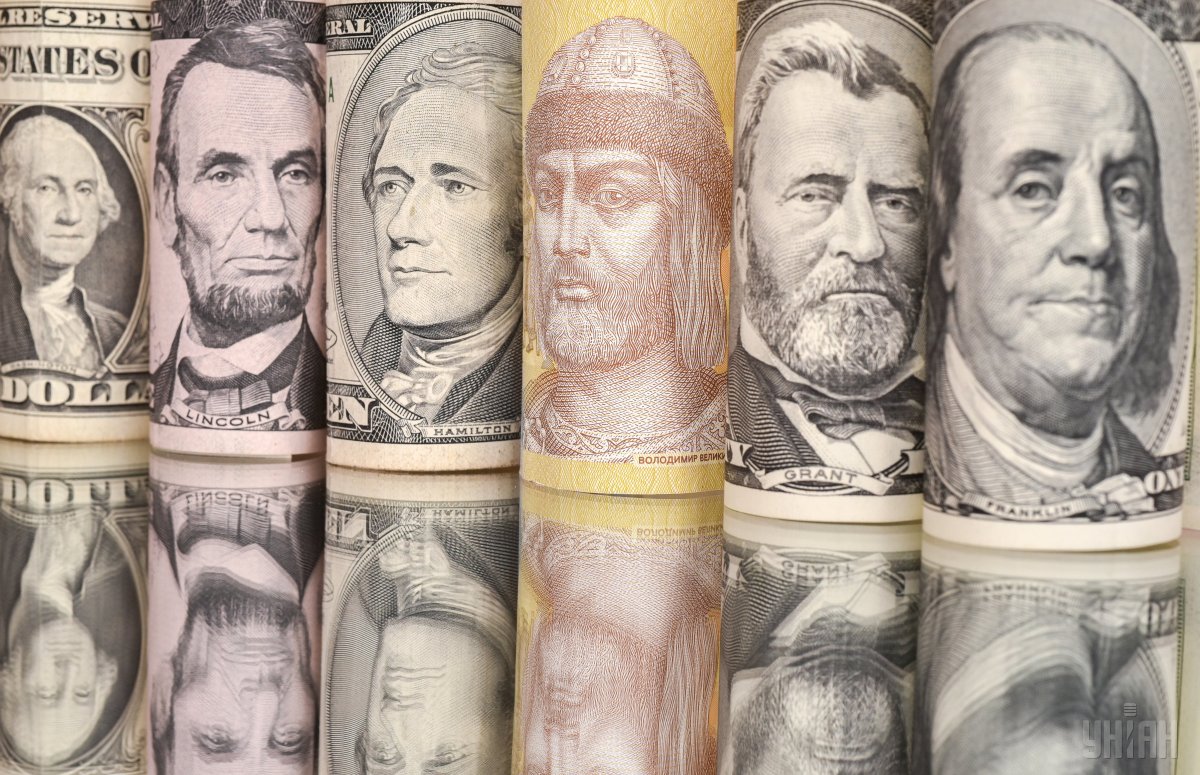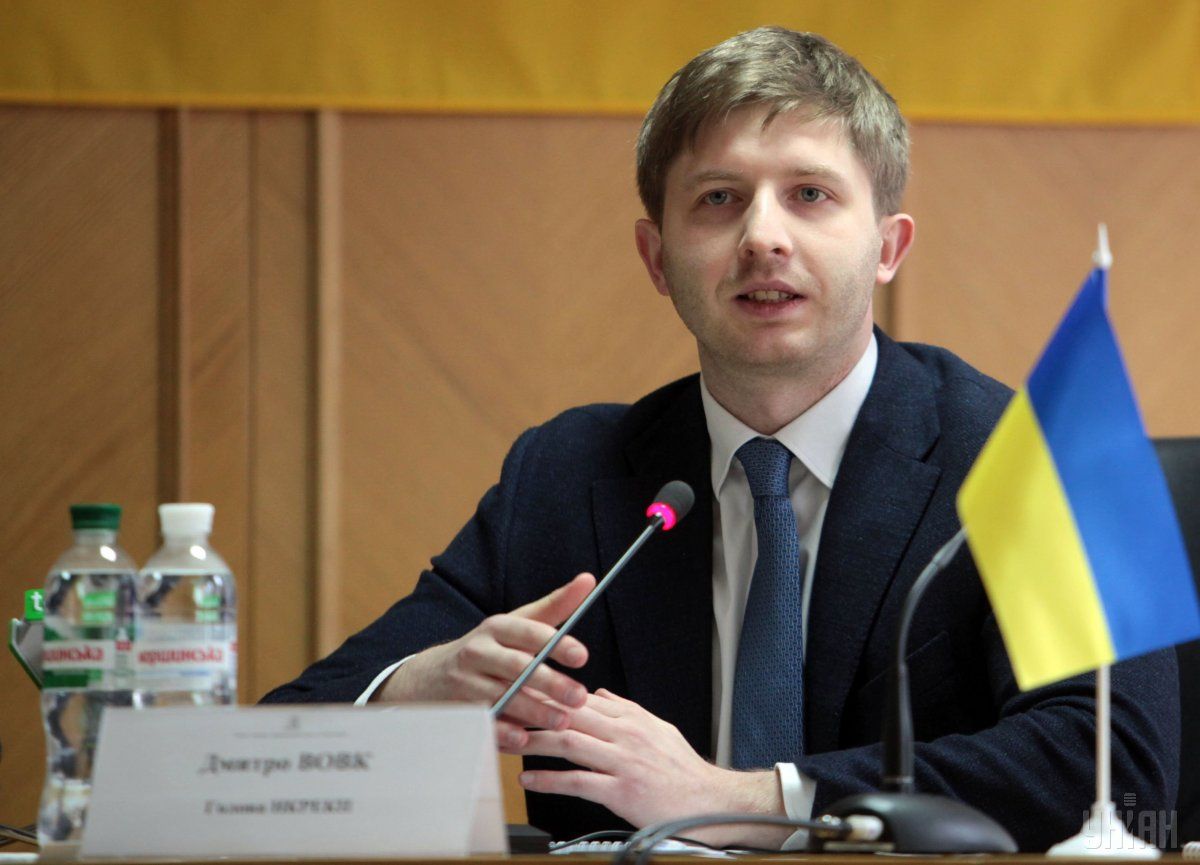
Week's balance: UAH 30 per dollar, burden of minimum wage rise, and energy regulator's staffing issue
The government set Ukraine's budget policy for 2019-2021, predicting a fall of the national currency down to UAH 31.8 per dollar; the IMF issued an outlook for the country's economic development; the finance ministry came out with an unexpected confession that raising minimum wage is impossible, while Prime Minister Groysman named Ukraine's main economic problem - these are the main economic news of the outgoing week.
One of the key news this week was the government's approval of the main directions of the budget policy for 2019-2021. This extremely important document demonstrates how the Cabinet assesses the current situation in the country's economy and forecasts further developments. The shocker was the forecast of the national currency rate for the next three years. The Ministry of Finance believes that in 2019, the average annual exchange rate of the hryvnia is expected at UAH 30.5 / USD, in 2020 and 2021 - at UAH 31.4 / USD and UAH 31.8 / USD, respectively. That is, the national currency will retain its course toward devaluation.
As for the economy, in 2019 it will grow to 3.6%, and in 2020 and 2021 - to 4% and 6.3%, respectively. The Cabinet also predicts that inflation will slow down to 6.5% in 2019, to 5% in 2020 and 4.8% in 2021. A bold forecast, indeed, since in recent years, all government forecasts for inflation were not justified, to put it mildly. Therefore, as they say, plans and forecasts are dreams of people who know how things work.
No less interesting would be to know, how the government intends to achieve macroeconomic stability. The document says that the treasury should receive more money, in particular, from rising excise taxes on liquor, higher rates of environmental tax and rental fees, and excise tax on tobacco products.
The government also intends to ensure the implementation of investment projects in various areas of domestic economy, and plans to maintain the course toward financial decentralization.
This week, Ukraine's key creditor, the International Monetary Fund, also issued its outlook for the development of the Ukrainian economy. The Fund slightly worsened the outlook for GDP growth in 2019 - down to 3.3% from 3.5%. At the same time, the IMF retained its forecast for this year at 3.2%, worsening the inflation forecast to 11% from 10%.
Another interesting detail is that among CIS countries (Belarus, Georgia, Armenia, Tajikistan, Kyrgyzstan, or Moldova), Ukrainian economy's prospects are rather bleak, according to the IMF forecast. Of all these countries, the outlook is worse only for Belarus.
The IMF did not forget to mention its recommendations for Ukraine. However, they have long been made public – to set up farmland market, recover the financial sector, as well as ensure open and competitive privatization. But, perhaps, the Fund's most important recommendation is to fight corruption. Not surprisingly, as of today, the Fund's main requirement is the creation of an Anti-Corruption Court.
Unpleasant surprise

After the first quarter in Ukraine, the minimum wage was supposed to be raised to UAH 4,200 per month. Both President Petro Poroshenko and the Cabinet hatched such plans, laying down a corresponding norm in the state budget 2018.
But now, the Finance Ministry comes out with a sensational statement. It turns out that the economy will not be able to carry the burden of the higher minimum wage. In other words, there is no money for any increases, as Deputy Finance Minister Serhiy Marchenko clearly stated. According to the official, had the minimum wage grown from April to UAH 4,200, the government would have had to expand budget expenditures by at least UAH 13 billion. Moreover, in the first quarter, the state budget received UAH 193.6 billion, which is 96.9% of the target for this period.
Meanwhile, Minister of Social Policy Andriy Reva insists on raising the minimum wage, assuring that this year it can be increased to at least UAH 4,100.
"As a minister, I suggest we must raise the minimum wage to the amount voiced by the president as the state budget was being adopted. That's the minimum requirement. Why is it UAH 4,100? This is not an accidental figure. After all, we consider the actual cost of living, and today it is in fact within said amount. Therefore, there is reason to raise," said Reva.
According to the official, the minimum wage needs to be increased even more, up to UAH 5,000 UAH, but only in 2019. Resources could be found in the country's shadow economy, he suggests.
"In Ukraine, according to the State Statistics Service, the share of shadow economy in Ukraine is 40%. Can we calculate our financial capabilities without the influence of this factor? I think we can't," he said.
Time will show, what results discussions between the Ministry of Finance and Ministry of Social Policy will bring. Experts claim that without forcing reforms and continuing cooperation with major creditors, such as the International Monetary Fund, an unjustified increase in the minimum wage will bring nothing good to the country.
Threatening debt

The National Bank published its assessment of the country's economy over the first three months of the year. According to the regulator's calculations, GDP growth in the first quarter compared to the same period last year amounted to 2.3%.
"Real GDP increased 2.3% yoy in Q1 2018, according to the NBU's estimates. Domestic demand, both consumer and investment, remained the main growth driver. Further nominal wage growth and rising social standards, strong business expectations, and a favorable external environment helped bolster economic growth. To some extent, a lower comparison base, due to disruptions in production and logistic links with the NGCA, was another contributor. However, this effect will only be fully realized in the quarters ahead. Unfavorable weather conditions in late Q1 2018 slightly restrained economic activity," the NBU said in the April inflation report.
Private consumption supported further increases in salaries and social standards, including an increase in pensions at the end of last year and a minimum wage from the beginning of 2018, as well as an improvement in consumer expectations of households.
At the same time, the National Bank underlines that intensifying efforts to continue cooperation between Ukraine and the International Monetary Fund is critical for maintaining macrofinancial stability.
In 2018, the NBU expects to receive about $2 billion in a loan from the IMF, which, along with the support of other partners, would increase international reserves to $21.6 billion. However, the IMF has not received any positive signals.
Last week, Ukraine's official delegation left for the annual spring meeting of the International Monetary Fund and World Bank and the only report that has come so far is that the requirements for obtaining the next IMF tranche remained the same.
"On the reform agenda in the context of IMF cooperation, we have at the moment two prior actions which are not completed. First is the passing the law on creation of anti-corruption court. And second is introducing the mechanism of automatic adjustment of the gas tariffs to market level," Danyliuk said answering questions during an Atlantic Council roundtable in Washington, D.C.
The lack of the new tranche is superimposed on the need to repay Ukraine's external debt as the peak of payments will come this year and over the next few years, too. According to Prime Minister Groysman, in March alone, Ukraine paid an astonishing $1.4 billion on foreign debt.
Without cooperation with the International Monetary Fund, Ukraine could of course enter into foreign borrowing markets but, as Deputy Finance Minister Serhiy Marchenko explains, it will be a costly endeavor. This cannot look very attractive, especially given Groysman's statement that the country's main economic problem is the external debt pressure of more than $65 billion, of which $46 billion was attracted in 2007-2014.
"The biggest problem from the economic perspective is the pressure of external debts, most of which had been accumulated before 2014 ... In fact, from 2007 to 2010, the government took $26 billion. It's $26 billion, despite the fact that Ukraine never became stronger. The government from 2010 to 2014 took more than $20 billion. In fact, the total debt today is $65 billion plus, lying on the shoulders of Ukrainians and the Ukrainian economy," Groysman said.
According to the prime minister, the government managed to reduce the debt-to-GDP ratio, but Ukraine still needs further funding from international partners.
"In the first quarter of 2018, the debt is the lowest relative to GDP since 2011, which is an important signal. But if our program of cooperation [with the IMF], for example, the creation of the Anti-Corruption Court or other parameters, is not fulfilled, it will be difficult for us to meet these challenges," Groysman stressed.
Also, the head of government noted that Ukraine in 2018 will spend UAH 130 billion only for servicing the external debt, without taking into account its actual repayment.
Energy regulator's staffing issue

The main intrigue of the outgoing week unfolded around the selection of new members to the National Energy and Utilities Regulation Commission. The bid evaluation commission was to decide on whether to allow a scandalous current NEURC chief Dmytro Vovk running for another term as the regulator's member. Vovk's scandalous reputation is due to a number of unambiguous decisions taken throughout his cadence, harshly criticized not only by the expert community and businesses, but also the country's leaders, including Prime Minister Groysman.
Among such moves was the introduction of a notorious "Rotterdam +" formula, which led to a significant increase in electricity tariffs. Also, NEURC received a good portion of criticism for attempts to introduce a subscription fee for gas and for the introduction of incentive tariff formation for regional energy distribution companies, which establishes rates of return on old and new assets at 12.5%.
In 2016, a law on NEURC was passed, providing for the creation of an independent regulator, including by appointing its members on a competitive basis, while the acting members had been appointed by the president.
According to the rules of rotation of the NEURC members, Vovk's term of office expires in May of this year. However, he decided to stay at the helm and applied for contest. The intrigue was that the law adopted in 2016 does not allow candidates with experience in the energy sector of under 5 years to take part in the contest.
Vovk's CV clearly states that he was appointed to the post of the acting head of the NEURC in late December 2014. Since June 2015, he became head of the regulator. In 2009-2013 he worked for the investment company ICU, which media associate with President Poroshenko. From March 2013 to December 2014, Vovk worked in Moscow - in Roshen Corporation, also formally owned by the head of state.
It would seem that the decision should be clear to the commission, but its final adoption took more than two hours. Preliminary rejecting Vovk's application, the commission gave him two days to prove his working experience.
Head of the commission, Vasyl Kotko, then noted that no one really knew how long Vovk had been engaged in projects in the coal industry. According to Kotko, if Vovk proves that he managed energy projects in ICU, this can be considered "experience in the energy sector."
On April 18, Vovk provided data that while in ICU, he had been engaged in projects related to a mining and metallurgical company Donetskstal.
A number of experts and people's deputies from Batkivshchyna and Samopomich parties who attended the meeting noted that the experience in ICU cannot be attributed to the energy sector, since the company itself works in the field of investment consulting, while Donetskstal operates in metallurgy.
After a two-hour debate, the commission finally accepted the obvious and refused Vovk access to the contest. The decision could still be appealed in court.
Member of the bid evaluation commission Svitlana Holikova stated that the reason for appeal could be the presence of people's deputies at the meeting that some could interpret as pressure on the Commission. At the same time, she noted that the presence of politicians never influenced the Commission's decisions, nor were any facts revealed of "illegal interference" in its activities.
It is worth emphasizing that the NEURC regulates markets worth several hundred billion hryvnias, which means that the country's future economic development and well-being of its citizens will largely depend on the regulator's team, all members of which must be elected on a competitive basis, to restore confidence in one of the most important bodies with their competent and professional actions.
Ihor Orel

